33m高速巡逻艇总体设计毕业论文
2020-04-12 16:37:26
摘 要
本文根据船舶建造要求和相关法规与规范,综合考虑船舶航区及性能、使用功能等因素,阐述了沿海高速巡逻艇的设计方法与步骤。
设计的主要内容及步骤包括:首先,分析任务书,找出设计的主要矛盾;接着,根据收集的母型船数据及对设计船的了解进行初步的总布置草图绘制;然后,计算得到主尺度要素,适当变换初始方案的主尺度以进行方案比选,选出最优方案;之后,利用Maxsurf软件绘制型线图,并进行静水力计算;根据型线图、主尺度要素与船型参数和母型船数据,进行总布置设计;再用图谱设计法完成螺旋桨设计;最后完成船舶的完整稳性校核、吨位丈量及最小干舷计算等工作。
本设计船用于进行水上治安巡逻、反恐防暴、打击水上违法犯罪活动、水上救援和指挥交通等工作。航行于上海市沿海航区。满载试航速度为30kn,满载情况下的自持力为10小时。设计船的主要数据如下:总长Loa为33.3m,垂线间长Lpp为29.2m,水线长Lwl为30.15m,型宽B为5.28m,水线宽Bwl为4.45m,型深D为2.1m,吃水d为1.22m,方形系数CB为0.48。
设计时首先需要保证布置的合理,在此基础上还需考虑船舶的快速性和稳性,以满足船舶的建造与使用要求。
关键词:高速巡逻艇;布置地位;快速性;稳性
Abstract
The design method and procedure for a coastal high-speed patrol ship has been demonstrated in this article according to shipbuilding requirements and relevant rules with consideration of navigation area, performance and function.
The main contents consist of: first analysis of the design assignment to find principal contradiction, drawing of draft general arrangement according to the data of parent ship and design ship, determination of principle dimensions and coefficients, changing the principle dimensions and coefficients to select the best plan, using maxsurf to design the ship hull lines and calculate ship hydrostatic, general arrangement design according to former data, using atlas design method to design propeller, finally calculation of stability, tonnage and minimum freeboard etc.
The designed ship is used for water security patrol, anti-terrorist and anti-riot, combating water crimes, water rescue and directing traffic. It sails in Shanghai coastal area with a full-load speed of 30 knots and 10-hour continuing sailing capability. The main data of the design ship are as follows: Loa=33.3m, Lpp=29.2m, Lwl=30.15m, B=5.28m, Bwl=4.45m, D=2.1m, d=1.22m, CB=0.48.
The design must first ensure the general arrangement is appropriate. On the basis of it, the rapidity and stability of the ship must also be considered to satisfy the requirements for the use and construction of design ship.
Keywords: High-speed patrol ship; The arrangement position; Rapidity; Stability
目 录
摘 要 I
Abstract II
第1章 绪论 1
第2章 任务书分析 2
2.1设计目标 2
2.2基本内容 2
2.3设计思想 2
2.3.1船体材料 2
2.3.2航行区域 2
2.3.3船型特征 2
2.3.4总布置特征 3
2.4设计中的主要矛盾 3
第3章 全船说明书 4
3.1概述 4
3.1.1 用途与航区 4
3.1.2 船型 4
3.1.3 船级及规范 4
3.2主要尺度及性能 4
3.2.1 主要尺度 4
3.2.2 甲板间高、舷弧及梁拱 4
3.2.3 动力装置 5
3.2.4 航速 5
3.2.5 自持力 5
3.2.6 稳性及干舷 5
3.2.7 人员定额 6
3.2.8 布置概况 6
3.2.9 吨位及液舱容积 6
3.3 舾装设备 6
3.3.1 锚泊设备 6
3.3.2 系泊设备 6
3.3.3 操舵设备 7
3.3.4 救生设备 7
3.3.5 桅樯设备 7
3.3.6 消防设备 7
3.3.7 门、窗、盖、梯 7
3.4 通风与空调 8
3.4.1 通风系统 8
3.4.2 空调系统 8
3.5航行信号设备 8
3.5.1 航行设备 8
3.5.2 信号设备 8
3.6 通讯 8
3.6.1 船内通讯 8
3.6.2 船外通讯 9
3.7 舱室设备 9
3.7.1 驾驶室 9
3.7.2总指挥室 9
3.7.3 船员舱 9
3.7.4 贵宾舱 9
3.7.5 普通舱 9
3.7.6紧急救助室 10
3.7.7 卫生间 10
3.7.8配餐间 10
3.7.9 机舱 10
第4章 主尺度确定 11
4.1设计思想 11
4.2船舶主尺度确定 11
4.2.1母型船主要要素 11
4.2.2设计船主尺度确定 12
4.3性能校核 14
4.3.1浮性校核 14
4.3.2初稳性校核 17
4.3.3横摇周期估算 17
4.3.4快速性校核 18
4.4小结 20
4.5方案比选 21
第5章 型线设计 22
5.1概述 22
5.1.1型线设计内容 22
5.1.2型线设计方法 22
5.2主要型线要素的选择 23
5.2.1棱形系数CP 23
5.2.2浮心纵向位置XB 23
5.2.3横剖面面积曲线形状 24
5.2.4侧面轮廓线 24
5.3型线设计步骤 25
5.3.1母型船建模 25
5.3.2仿射变换 25
5.3.3母型船改造 26
5.3.5型线图绘制 28
第6章 静水力计算 30
6.1概述 30
6.2静水力曲线 30
6.3邦戎曲线 31
第7章 总布置设计 32
7.1概述 32
7.2总布置规划 32
7.2.1概述 32
7.2.2肋骨间距 32
7.2.3舱壁 32
7.2.4主甲板以下舱室布置 33
7.2.5艏楼甲板舱室布置 33
7.2.6主甲板舱室布置 33
7.2.7驾驶甲板舱室布置 33
7.2.8罗经甲板布置 34
7.2.9交通路线布置 34
7.3舾装设备 34
7.3.1消防设备 34
7.3.2救生设备 34
7.3.3信号设备 34
7.3.4航行设备 35
7.3.5锚泊设备 35
7.3.6系泊设备 35
7.3.7操舵设备 36
7.3.8桅樯设备 36
7.3.9通风与空调 37
7.3.10通讯设备 37
7.3.11舱室设备 37
7.3.12门、窗、盖、梯 38
第8章 螺旋桨设计 39
8.1概述 39
8.2螺旋桨设计考虑的若干问题 39
8.2.1螺旋桨数目的选择 39
8.2.2螺旋桨叶数的选择 39
8.2.3设计图谱 39
8.3有效功率曲线 39
8.4初步设计 40
8.4.1确定螺旋桨直径D 41
8.4.2确定推进参数 41
8.4.3初步设计 42
8.5终结设计 42
8.6空泡校核 44
8.7小结 46
第9章 完整稳性计算 47
9.1概述 47
9.2各载况下船舶重量重心位置计算 47
9.2.1满载出港 47
9.2.2满载到港 47
9.2.3空载出港 48
9.2.4空载到港 48
9.3自由液面的修正 49
9.4各载况下浮态和初稳性的计算 50
9.5横摇周期和横摇角的计算 51
9.6稳性衡准 53
9.6.1最小倾覆力臂 53
9.6.2风压倾侧力臂 56
9.6.3稳性衡准计算 57
9.7特殊稳性校核 58
9.7.1全速回航校核 58
9.7.2旅客集中一舷校核 58
9.8完整稳性总结 59
第10章 吨位丈量和干舷校核 60
以上是毕业论文大纲或资料介绍,该课题完整毕业论文、开题报告、任务书、程序设计、图纸设计等资料请添加微信获取,微信号:bysjorg。
相关图片展示:
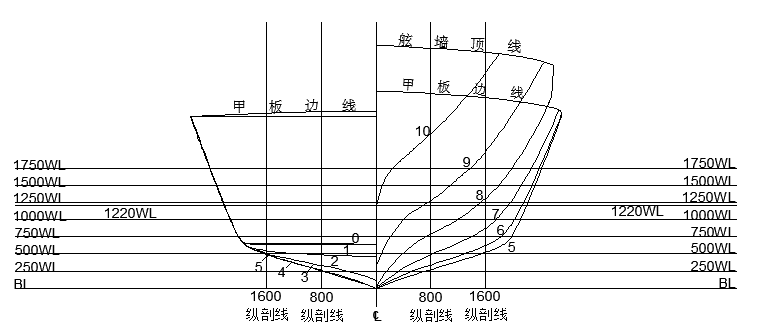
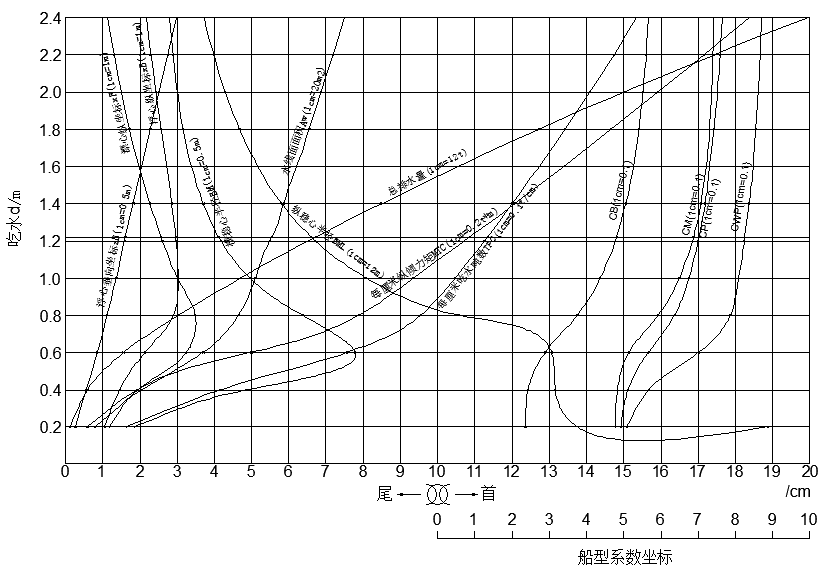

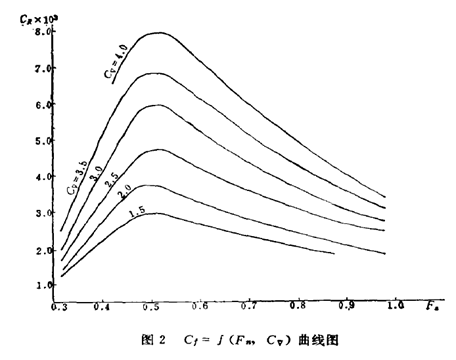
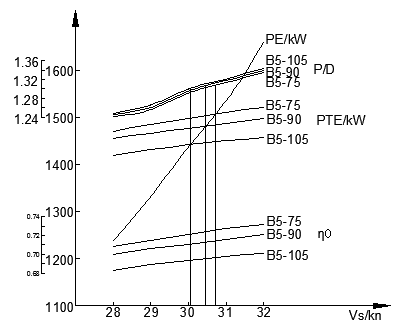
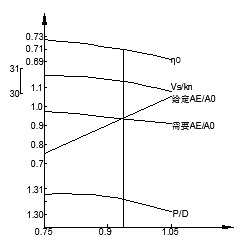
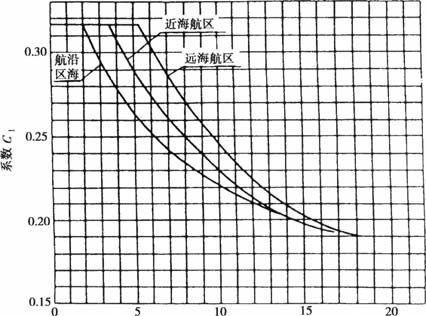
课题毕业论文、开题报告、任务书、外文翻译、程序设计、图纸设计等资料可联系客服协助查找。



